Discarded Greyhounds Imprisoned, Neglected, and Farmed for Their Blood
Imprisoned in an old turkey shed are approximately 150 perpetually penned greyhounds—many already used, abused, and discarded by the notorious dog racing industry—who neurotically spin in circles, jump up and down, cry out, and hide in the jagged old chemical tanks that serve as their only shelter.
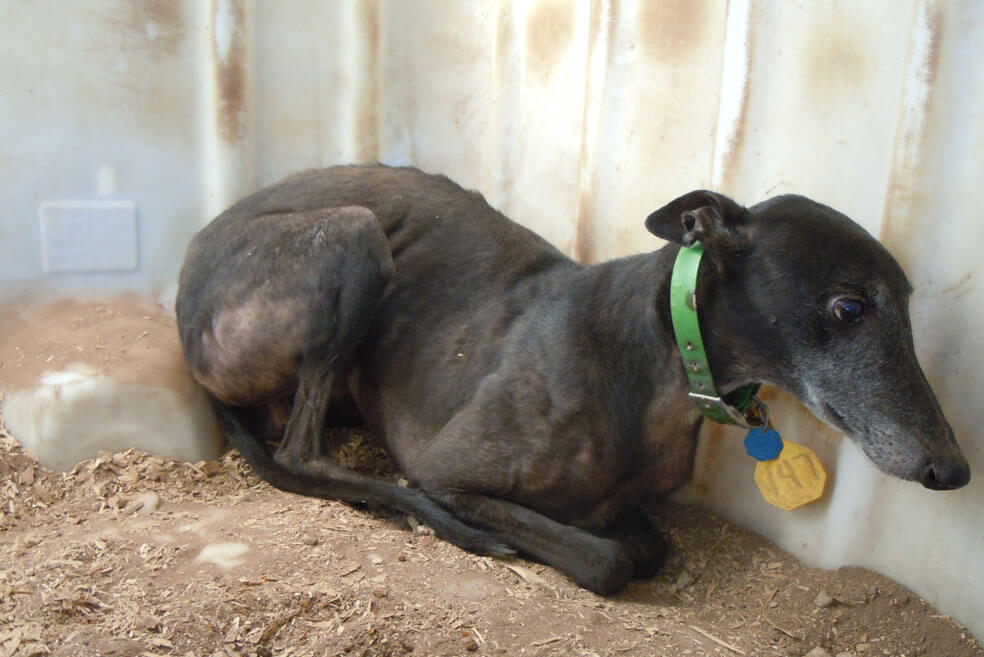
VICTORY! Hellhole Blood Bank to Close!
The Pet Blood Bank in Cherokee, Texas, will close its doors after transferring 151 dogs into adoption programs following PETA’s exposé.
PETA celebrates the release of these dear dogs who began life abused at a race track and wound up in a filthy blood bank. PETA will now work hard to get regulations passed to ensure all blood for emergency transfusions come from real donors, and not from imprisoned, miserable dogs.
Greyhound Industry Adopts Overdue Policy on Blood Banks
On the heels of PETA’s exposé, the National Greyhound Association (NGA) has barred its members from directly sending greyhounds to any blood bank operation. The NGA must approve the use of any member’s greyhound(s) for blood draws and prohibits dogs from being used for their blood for longer than 18 months or past the age of 7. All greyhounds used for blood collection must first be spayed or neutered and examined by a veterinarian. After blood draws, they must be examined again—and their condition documented—and they must then be placed in a home.
At a kennel doing business as The Pet Blood Bank, Inc., in Cherokee, Texas, these animals, who’ve already endured lifelong deprivation, are now being exploited for blood products, most of which are distributed by Patterson Veterinary Supply, Inc., a corporate giant with sales of nearly $3 billion in 2016 alone.
On September 22, 2017, one day after PETA exposed the blood farm, Patterson Veterinary Supply announced that “the conditions and treatment described and pictured … are horrific and unacceptable. … We have terminated business with [The Pet Blood Bank, Inc.], and we will work to support … efforts to ensure that the animals receive appropriate care.”
But for nearly a week, Patterson Veterinary Supply ignored questions about the specific ways in which it would assist the dogs. Then, on September 28, 2017, this multibillion-dollar company, which had pledged—in writing—to help the dogs, posted this cop out on a webpage created just a day earlier, which has nothing on it but this disappointing and unacceptable statement.
Solitary Confinement, Severe Deprivation
With few exceptions, the greyhounds are solitarily confined in unsanitary dirt-floored wire cages devoid of any form of enrichment.

They are deprived of everything that is natural and meaningful to them, including exercise, companionship, and the opportunity to bond with a human family. Out of boredom and despair, they just dig and chew on the old filthy chemical tanks that serve as their shelter, leaving sharp and jagged edges that sometimes injure them. Some dogs pace, spin endlessly in circles, jump up and down, and cry out when approached. Others are so terrified that they cower and lose control of their bladder or bowels.
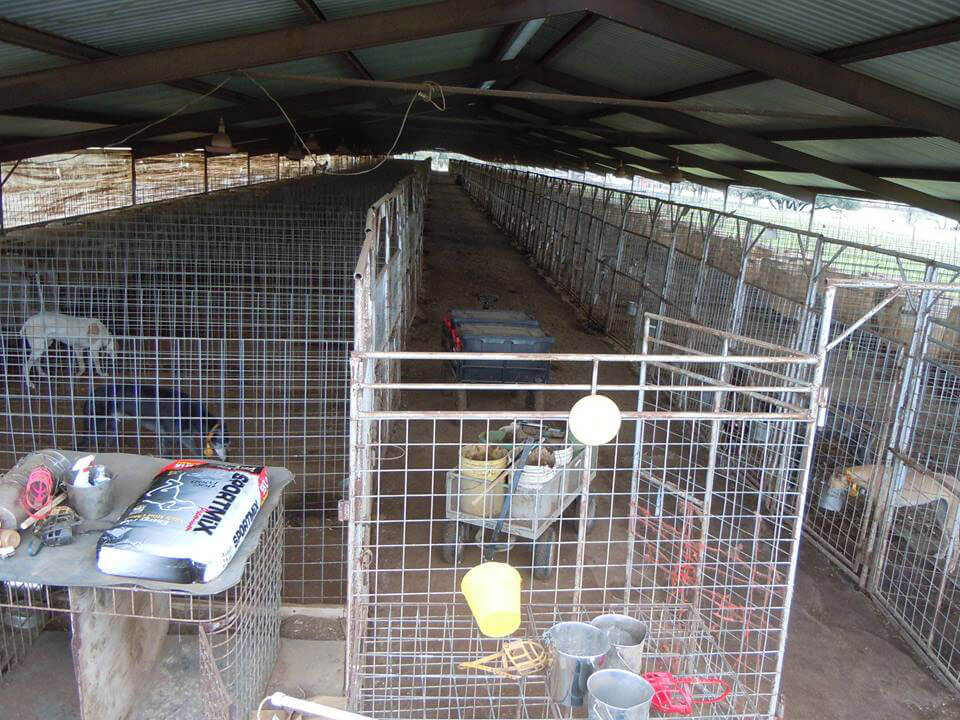
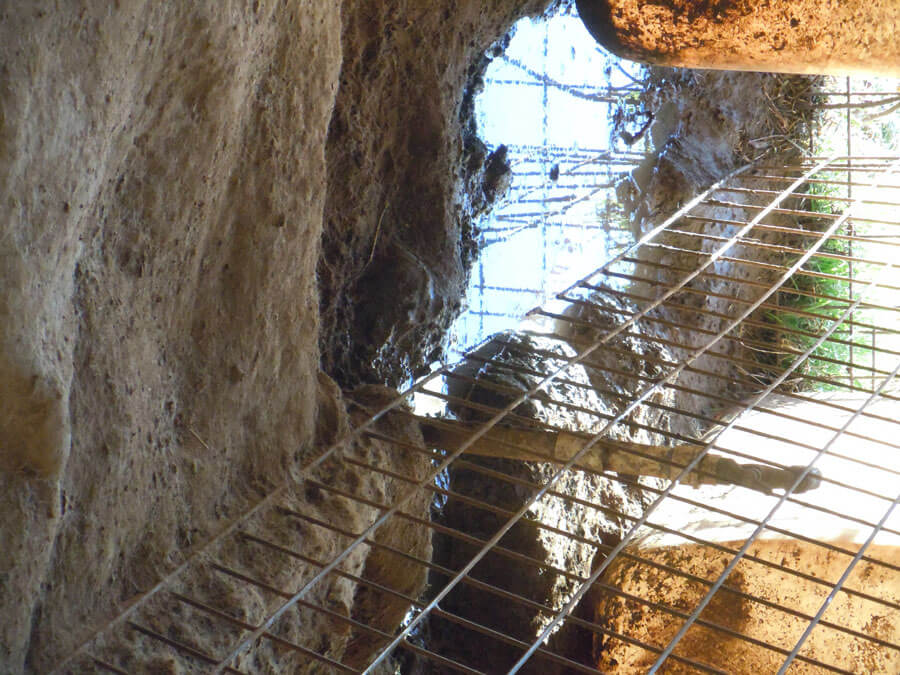
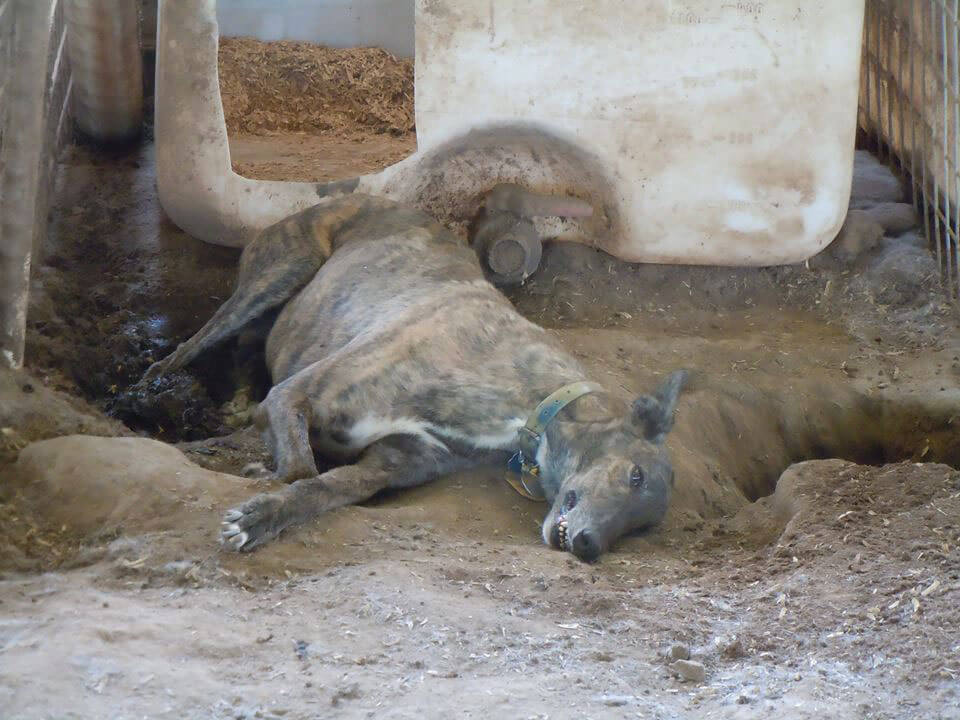
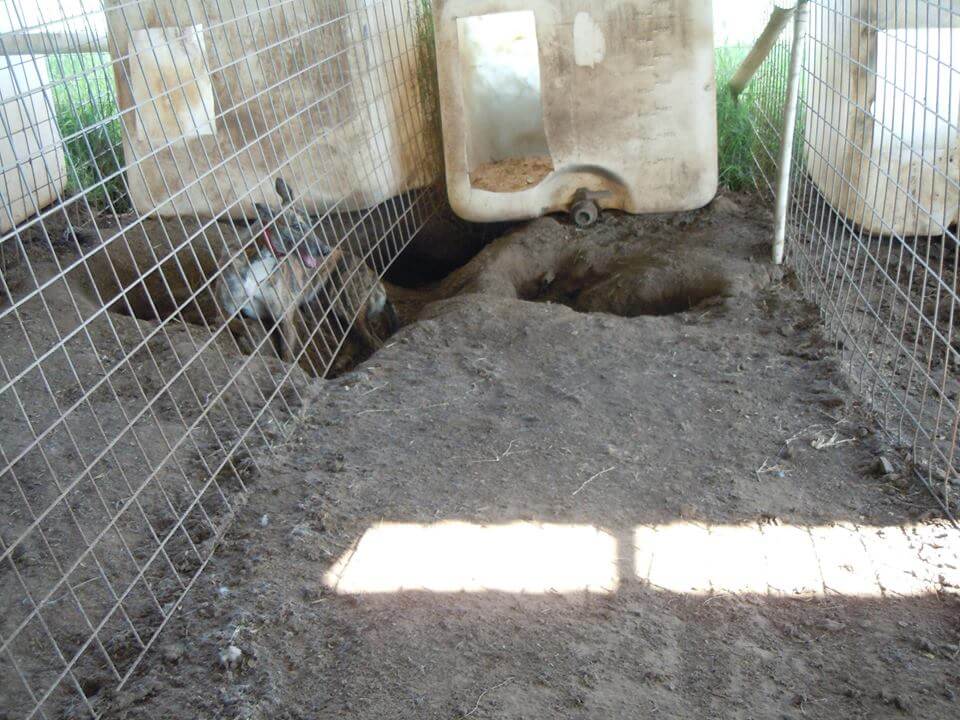

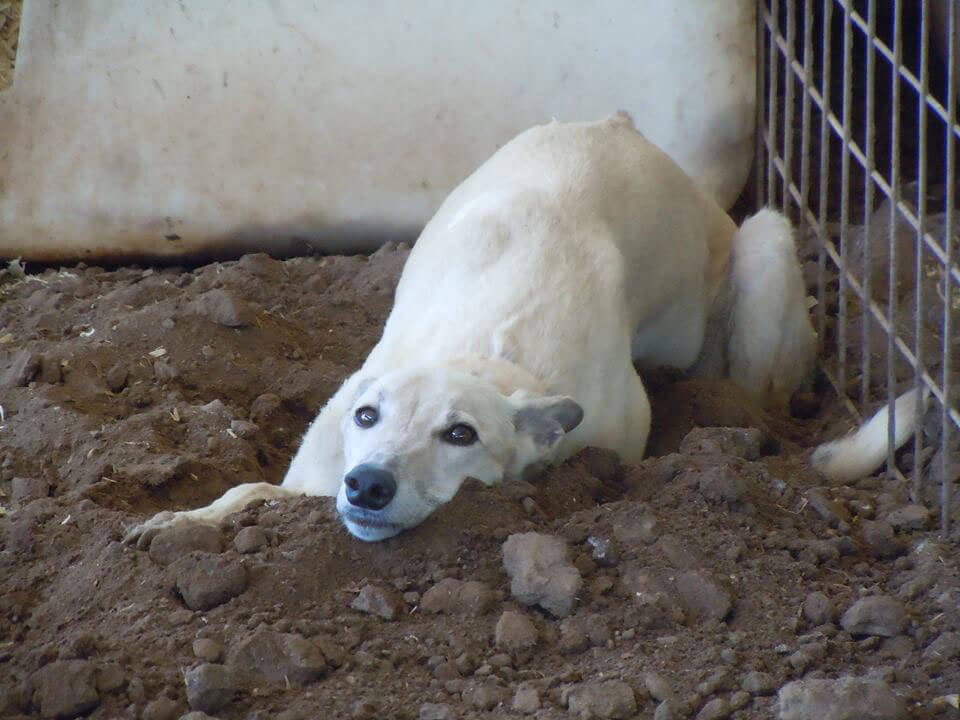

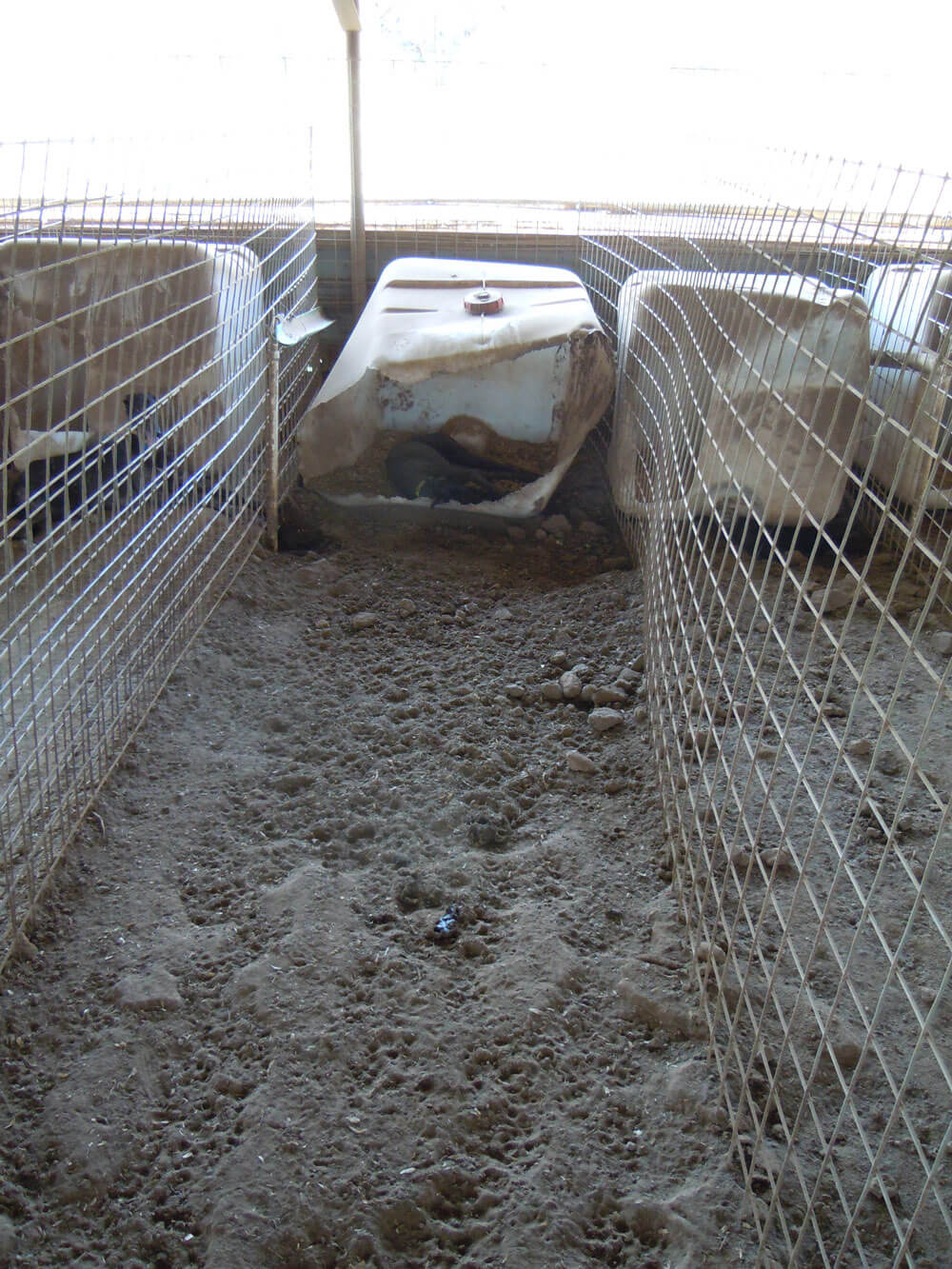

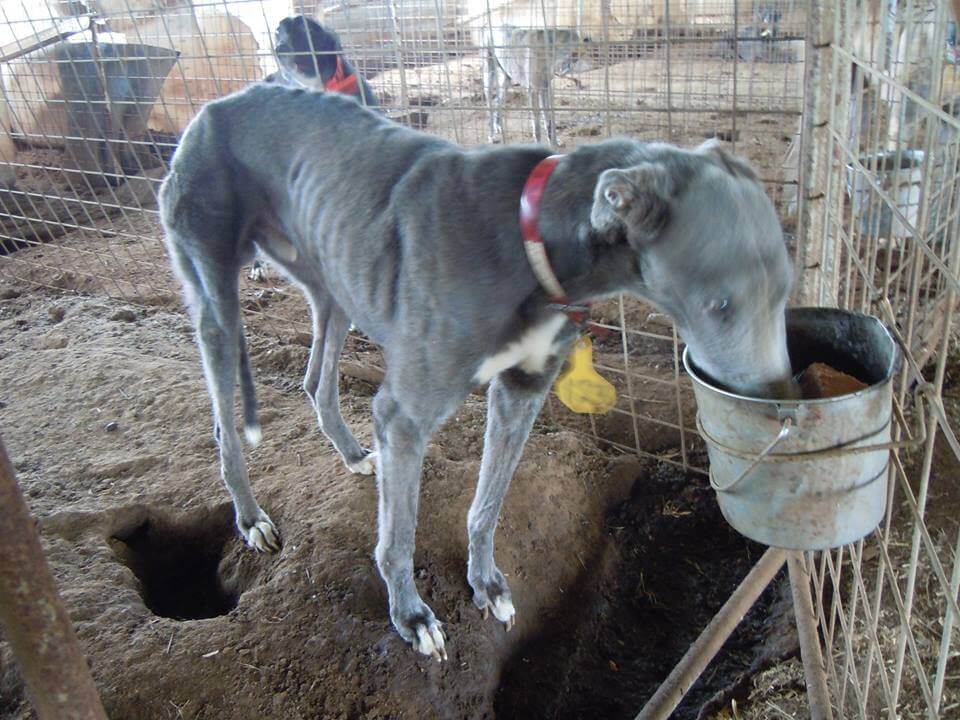
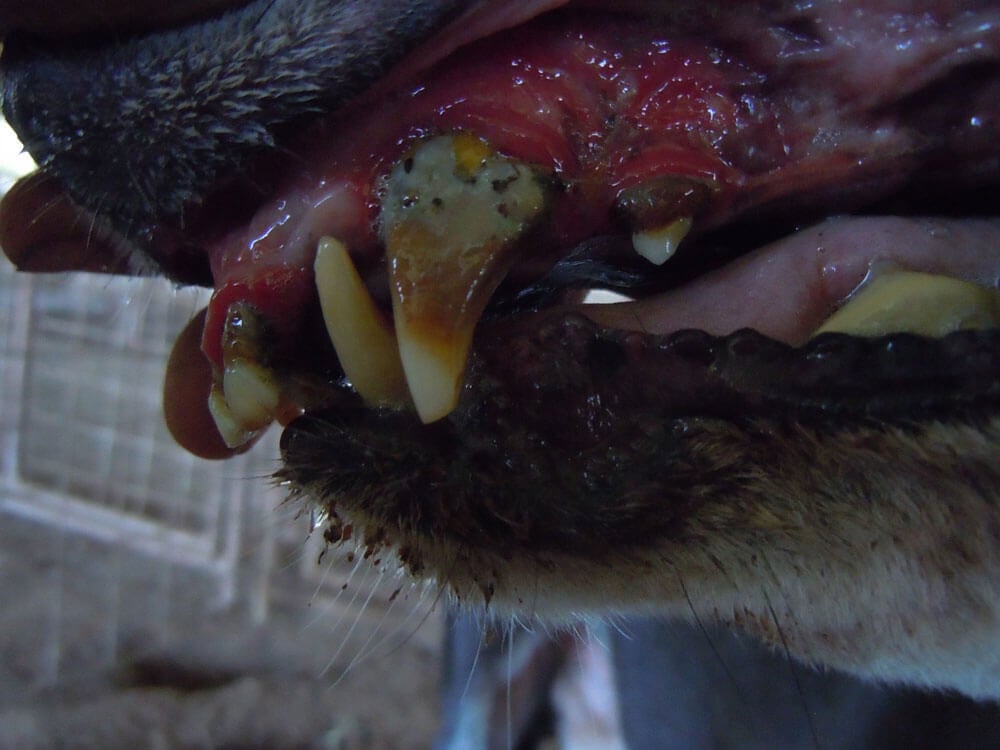
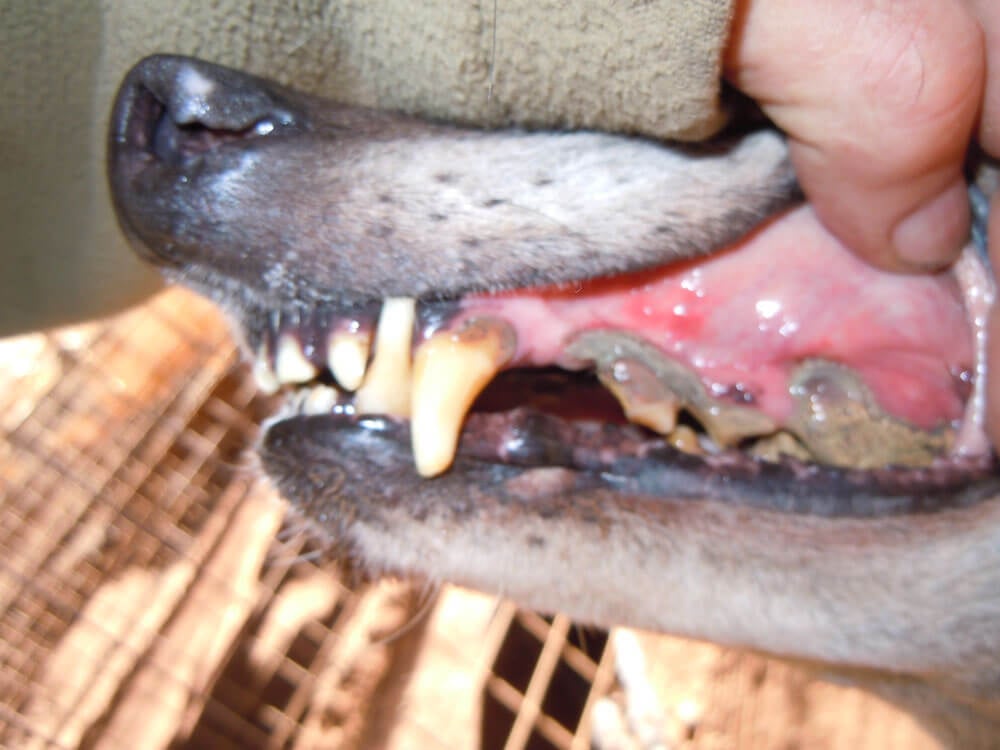
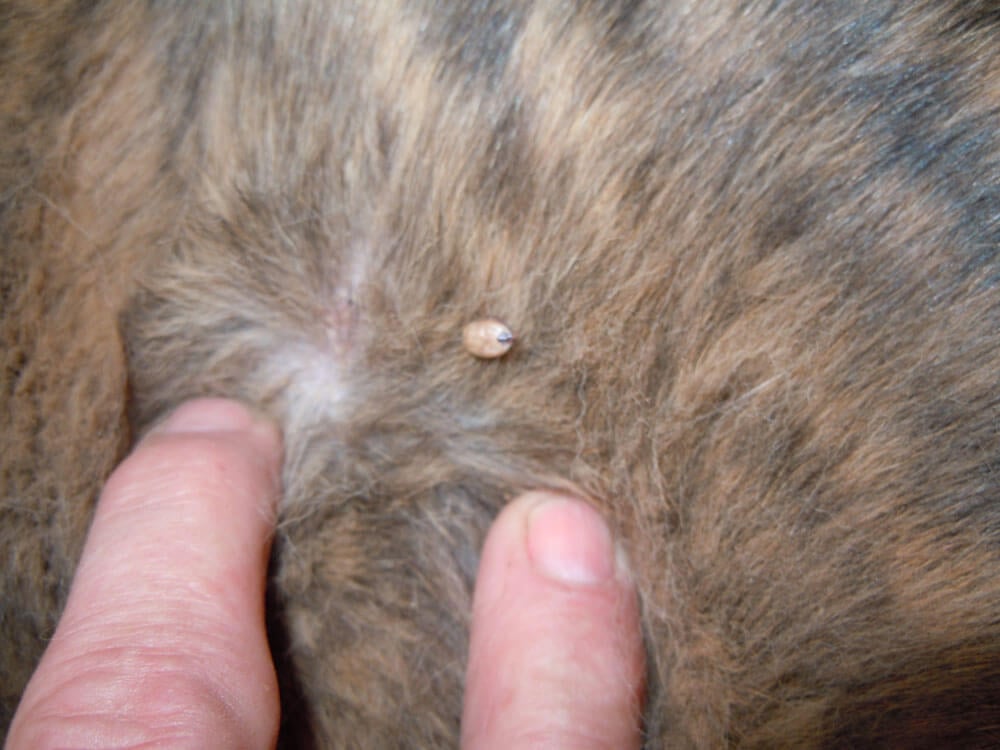

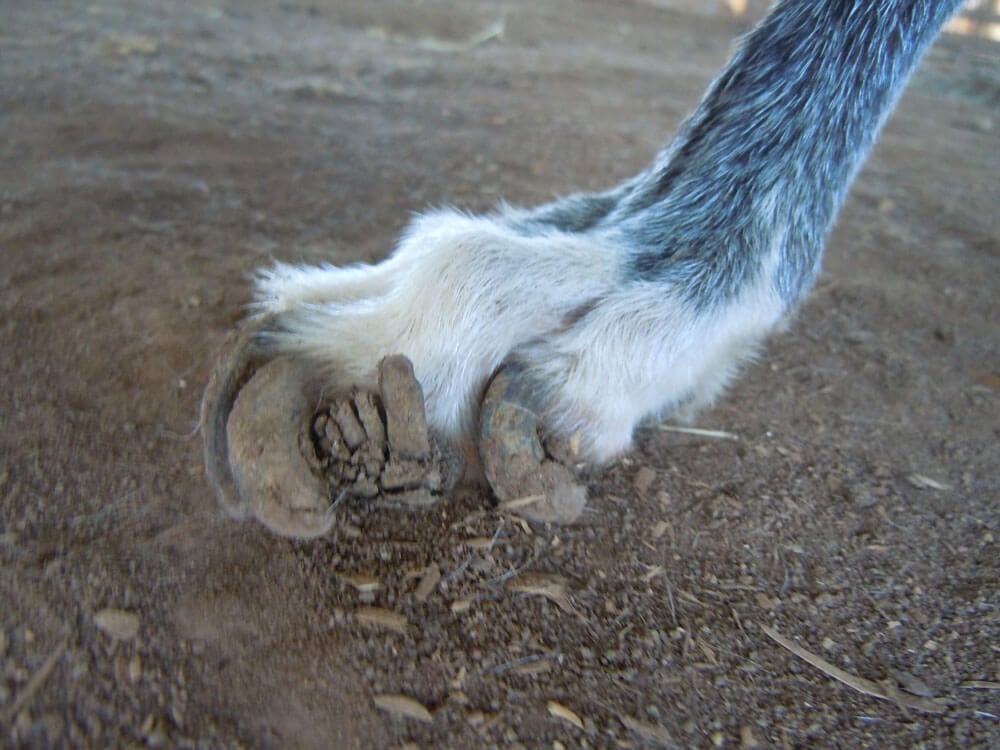
Chronic Failure to Provide Basic and Emergency Veterinary Care
Earlier in 2017, many of the dogs had nails so overgrown that they curled into their paw pads, pushed their toes apart, and caused them to limp. There is no system for routine nail trimming, and dogs are denied both routine and emergency dental care.
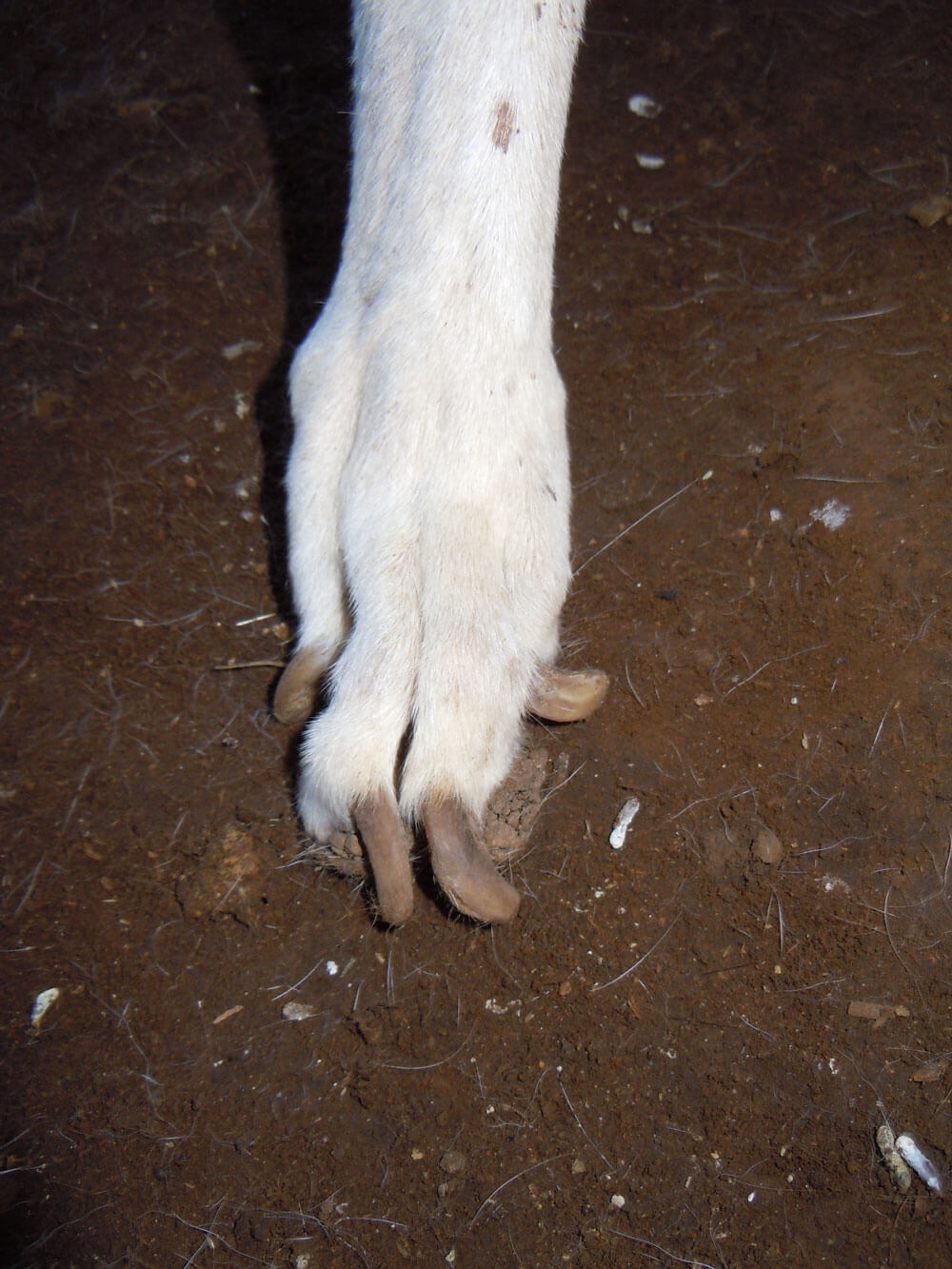
They have severe gingivitis, tartar buildup, and receding gums, causing severe pain and difficulty eating.

Greyhounds are very sensitive to extreme temperatures, and they are relentlessly tormented by the scorching heat of Texas summer and violently shiver when it’s cold. Some of them have deep open pressure sores on their hindquarters, as a result of having to lie on the hard ground without any body fat to pad them.
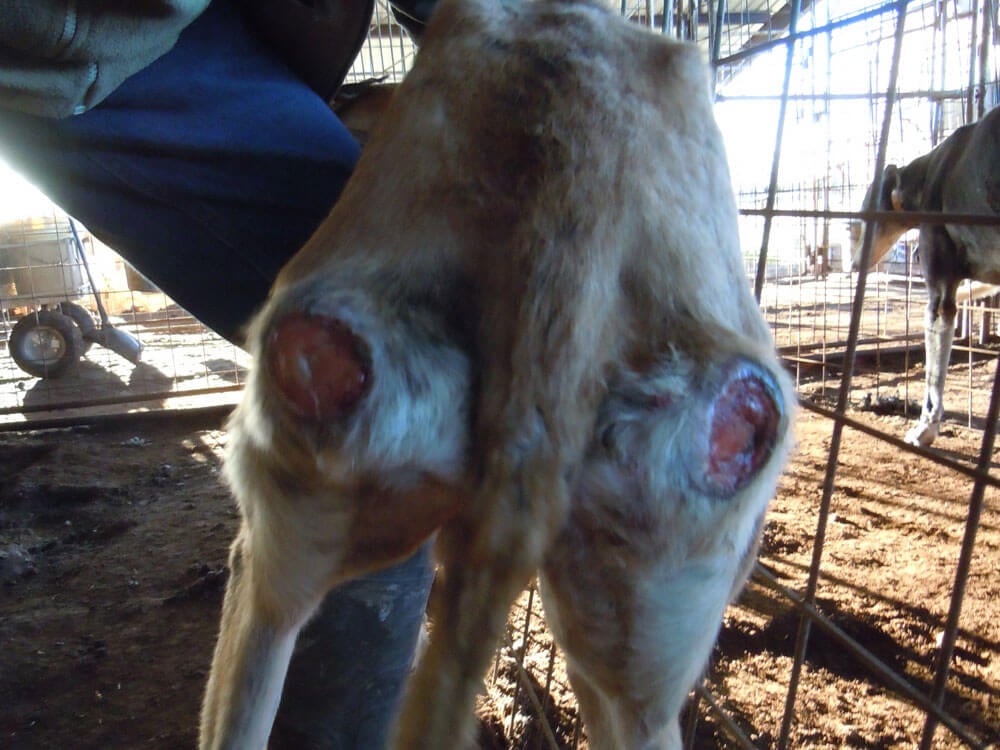
Management has denied veterinary care for serious wounds, infections, injuries, and more. In recent months, two dogs were found dead in kennels with watering devices that were bone dry.
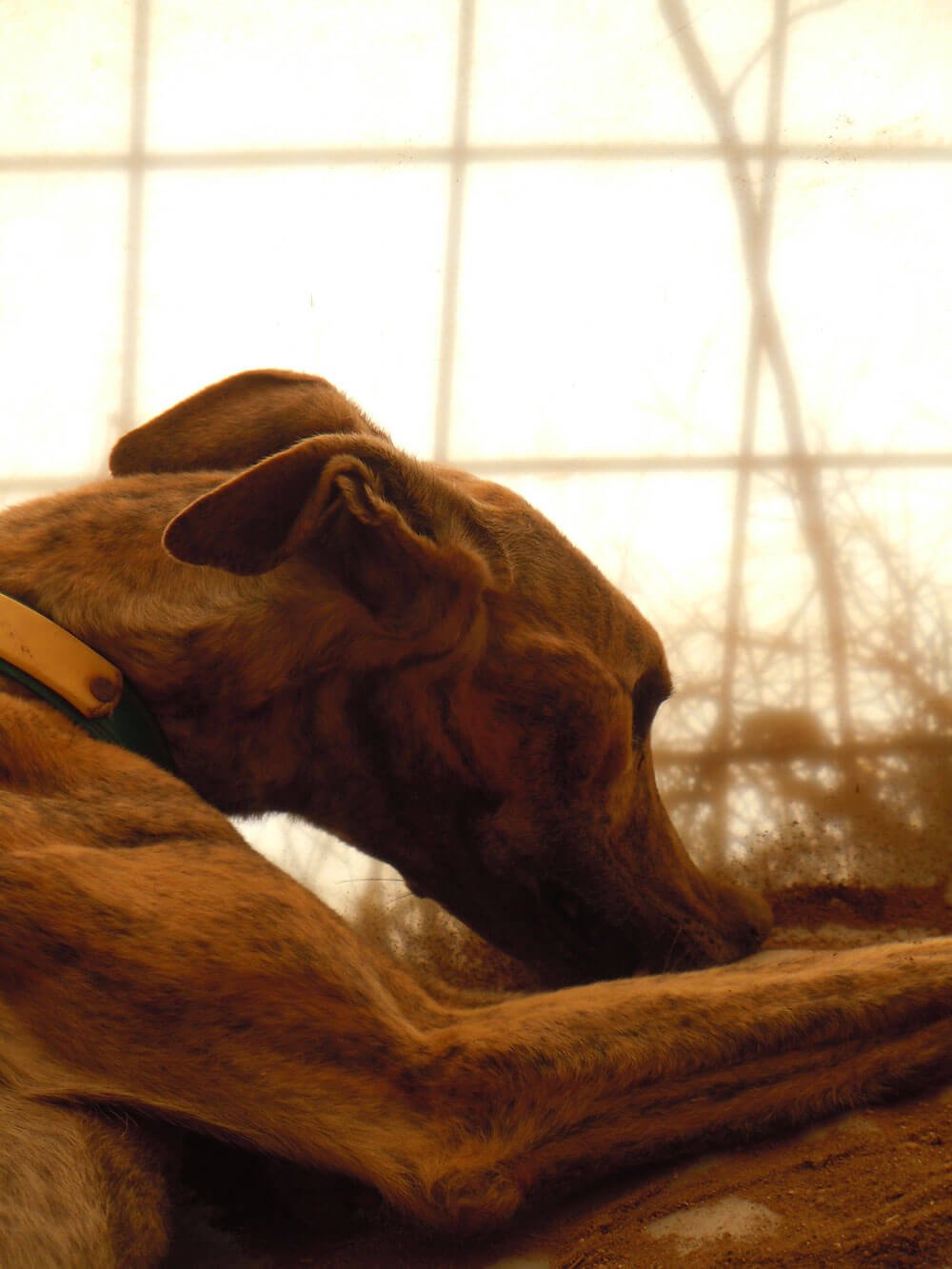
Up to 400 embedded ticks were discovered daily in mid-2017. In a crude attempt to control parasites, workers sprayed the greyhounds with a termiticide designed to be sprayed on trees and buildings. The chemical blistered their skin and irritated their eyes.
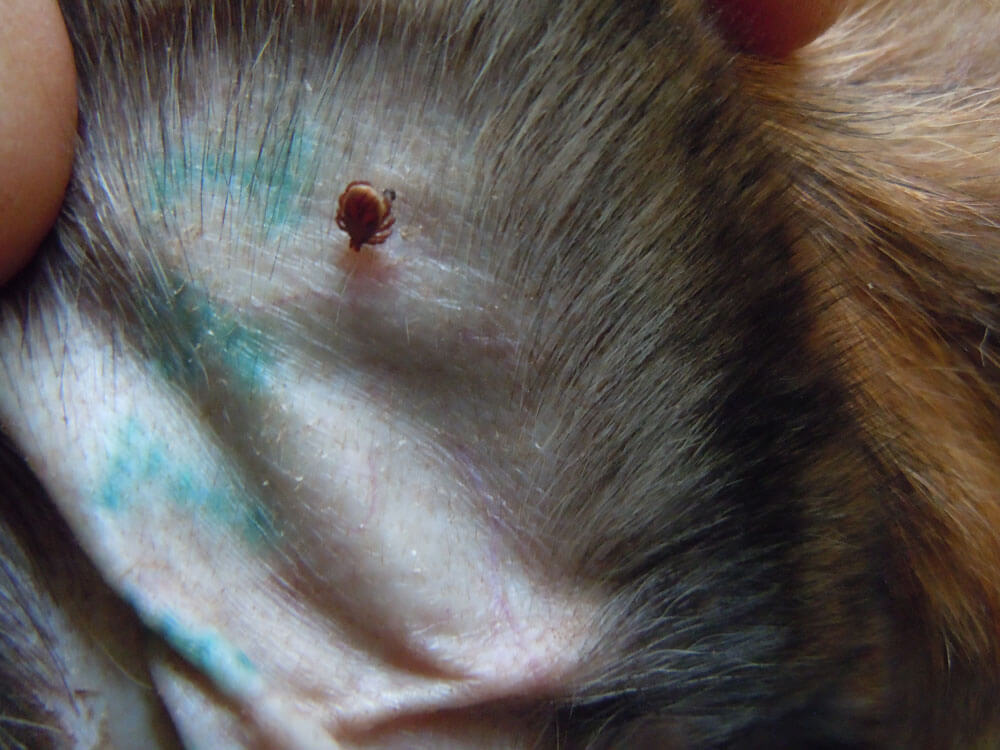
Frequent Bleedings, Rough Handling
Workers have snared frightened dogs with a homemade catchpole and dragged them, struggling, at least 75 feet to a trailer on the property to be bled.
For up to three hours, they are kept in crates—sometimes in the full sun without water and even muzzled—before and after being bled. In the trailer, the workers take up to 20 percent of their blood volume. Some become so weak that they have to be carried back to the kennels.
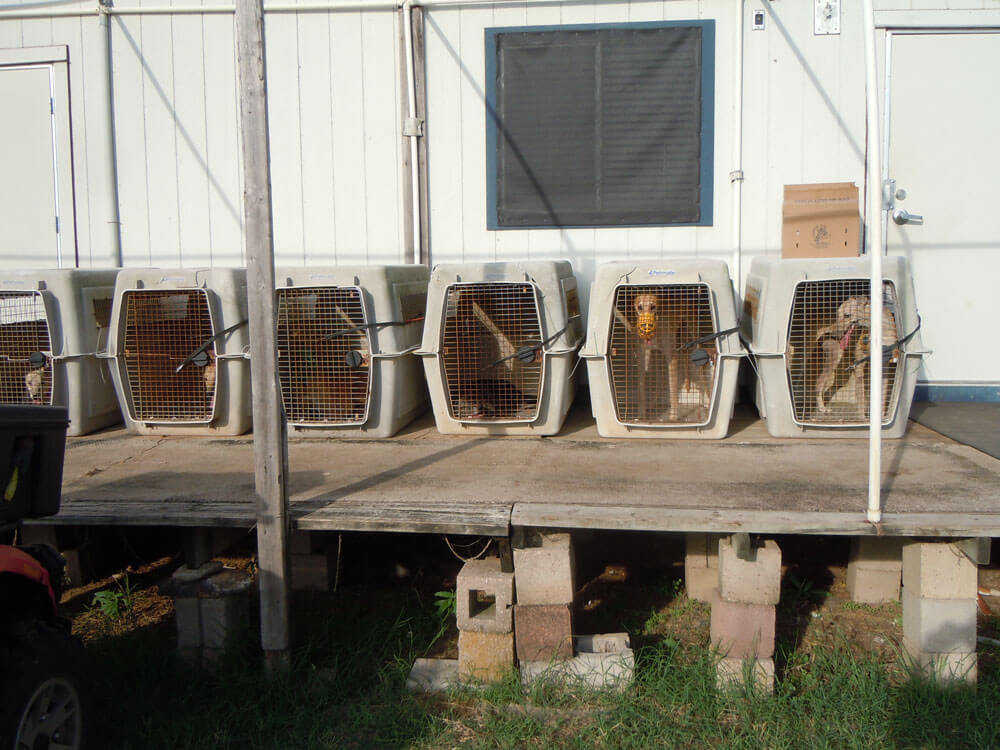
Blood products are then shipped out to veterinary clinics that undoubtedly have no inkling that the source is an unsanitary and cruel dog blood factory farm. In fact, The Pet Blood Bank claims online that its products are obtained from volunteer donors.
The Pet Blood Bank also claims to hold frequent blood drives and invites individuals willing to donate their dogs’ blood to contact them—but does not list any contact information.
Risking the Lives of Other Dogs?
Not only are the living conditions at this blood factory farm cruel to the dogs imprisoned there—they may also be endangering those who receive the blood.
Dogs given transfusions are usually either anemic, in urgent need of blood, or otherwise in critical condition. Their veterinarians expect the blood to be coming from donors who are healthy—not neglected, injured dogs who live amid mice, snakes, fleas, and ticks, all carriers of diseases easily transmitted by blood.

You Can Help Dogs at Other Blood Banks!
Although The Pet Blood Bank is closing, dogs are being held captive at similar facilities across the U.S.
It’s critical that veterinarians see this first-ever behind-the-scenes look at the unregulated industry that supplies canine blood products. Please share this information with any veterinarians you know and ask them to investigate where the blood products they order come from. Let them know that some blood banks may have falsely advertised that they rely on “volunteer” donors, as The Pet Blood Bank did.
Please ask your veterinarian to obtain canine blood exclusively from companion dogs who are taken to mobile blood drives and/or veterinary clinics to donate blood.
